
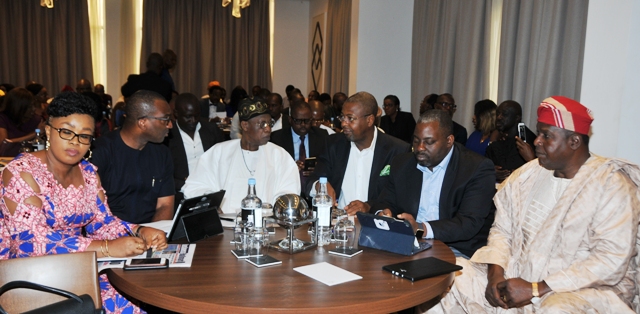
FG Partnership With UNWTO, CNN Come Under Fire From Tourism Stakeholders
Stakeholders comprising some organised tourism private sector associations have reacted angrily to the recent announcement by minister of Information and Culture, Alhaji Lai Mohammed that the Federal Government will go into a tripartite partnership with the CNN and the United Nations World Tourism Organisation [UNWTO] to boost the Creative Industry in Nigeria, using the film industry as a pivot.
First to react was Ikechi Uko, Chief Executive Officer, Akwaaba Travel Market, West Africa biggest annual travel and tourism exhibition, who said “I am surprised that the ministry can be having a discussion with the UNWTO without the organised tourism private sector inputs; considering the private sector experience in dealing with the UN agency, especially on the Tourism Master Plan that has never worked”.
Also speaking from his base in Kaduna, Malan Kabir, President, Association of Tourism Practitioners of Nigeria [ATPN], said that the government does not properly understand what tourism is all about and much more how to make it work.
“From the ways and manner the tourism private sector has been treated in the past, suggests to me that past leaderships of the organised tourism private sector failed to explain to the government on how this industry can work, or perhaps were only interacting with the public sector for their personal benefits.
“In fact there is no continuity, because the minster would have learnt from trends,” he noted.
Kabir concluded by saying that, every minister or director general would always want to start his or her stuff and at the end, nothing is achieved.
On his part, Vincent Ugbor, President, Hotel and Personal Services Employers Association of Nigeria [HOPESEA], said it’s a big shame for the organised tourism private sector not to be carried along, Ugbor therefore, suggested that a protest letter should be sent to the minister and possibly to the Acting President, Professor Yemi Osinbajo.
Lanre Owoseyin, President, Nigeria Hotel Association [NHA] taking a swipe on the past leaders of the Federation of Tourism Associations of Nigeria [FTAN], umbrella body of the private sector, blamed them for the disrespectfulness from government and its agencies.
Owoseyin noted that apart from this current issue, the ministry had in the past too, rubbished the sector for bringing on board just one technocrat on the technical committee of the abandoned Tourism Master Plan Committee, a critical policy that if well-articulated could lay a good foundation for the sector.
“Once again, the minister has been ill advised by choosing Creative Industry and Nollywood shenanigans that his predecessor touted with and never worked”, he said.
Owoseyin lamented that, what would Nigeria be selling or promoting through CNN, is it the pot holes on our roads, permanent darkness across the country or the undeveloped attractions; like Obudu and Tinapa that have all been abandoned, he asked.
Nkereuwem Onung, President, National Association of Tour Operators [NATOP], speaking on behalf of his association said the Ministry and Minister are of the thinking that when they mention names like Cable Network News [CNN] and United Nations World Tourism Organisation [UNWTO], the tourism private sector will be carried away.
He stated further that it is impossible to achieve result in any sector of the economy, much more a service industry like tourism without the involvement of the private sector operators.
“Without the tourism practitioners, the efforts will come to nothing” Onung concluded.
Bankole, Bernard, President, National Association of Nigeria Travel Agencies [NANTA], said he was not aware and that it would be wrong if that is the case.
Bernard said if the country is to embark on self-promotion internationally; using the Creative Industry, Culture and Nollywood as the ministry is set to do, such can still be done with inputs from the tourism private sector.
On his part, Rabo Saleh, President, Federation of Tourism Associations of Nigeria [FTAN], umbrella body for tourism private sector in Nigeria said that government cannot drive tourism without the private sector.
According to him, the private sector is the main driver of the industry, whilst government takes care of policies and provide enabling environment for tourism to flourish.
He however said that it’s not too late to bring the private sector into the discussion now to avoid mistakes of the past.
The minister had announced the partnership in Lagos on Monday July 10, at the Creative Industry Roundtable, saying that the film industry will be used ”as a lens through which the country would project various aspects of the Nigerian Culture, Tourism and similar areas”.
”We are kick-starting the project with a 13-episode production showcasing the various stages in a movie production. These include the choice of location, which will allow us to showcase the various beautiful sceneries available in Nigeria; the choice of wardrobe that will show the rich options in the country’s fashion industry; the choice of sound track that will highlight our rich music genres; the casting that will showcase our abundant talents and the technical part that will provide the platform to show that there is no camera and other gadgets that we don’t have here.
”As part of the project, we will also run a programme on CNN showcasing the 20 Nigerians to watch in the Industry. The Nigerians to be showcased will be selected by the industry players themselves to ensure authenticity,” the Minister said.
The minister also said that the tripartite partnership, as well as the MoUs with the Tony Elumelu Foundation, the Bank of Industry [BoI] and the British Council, were part of the efforts by the Federal Government to transform the Creative Industry to a Creative Economy.
According to him, “Government has no doubt that the plan to transform the Creative Industry to a Creative Economy must be driven by the private sector”.
Mohammed said deliberations from the Roundtable would feed into a larger event, the Creative Industry Financing Conference, slated for July17-18, at the Eko Hotel in Lagos and would be declared opened by Acting President Osinbajo.
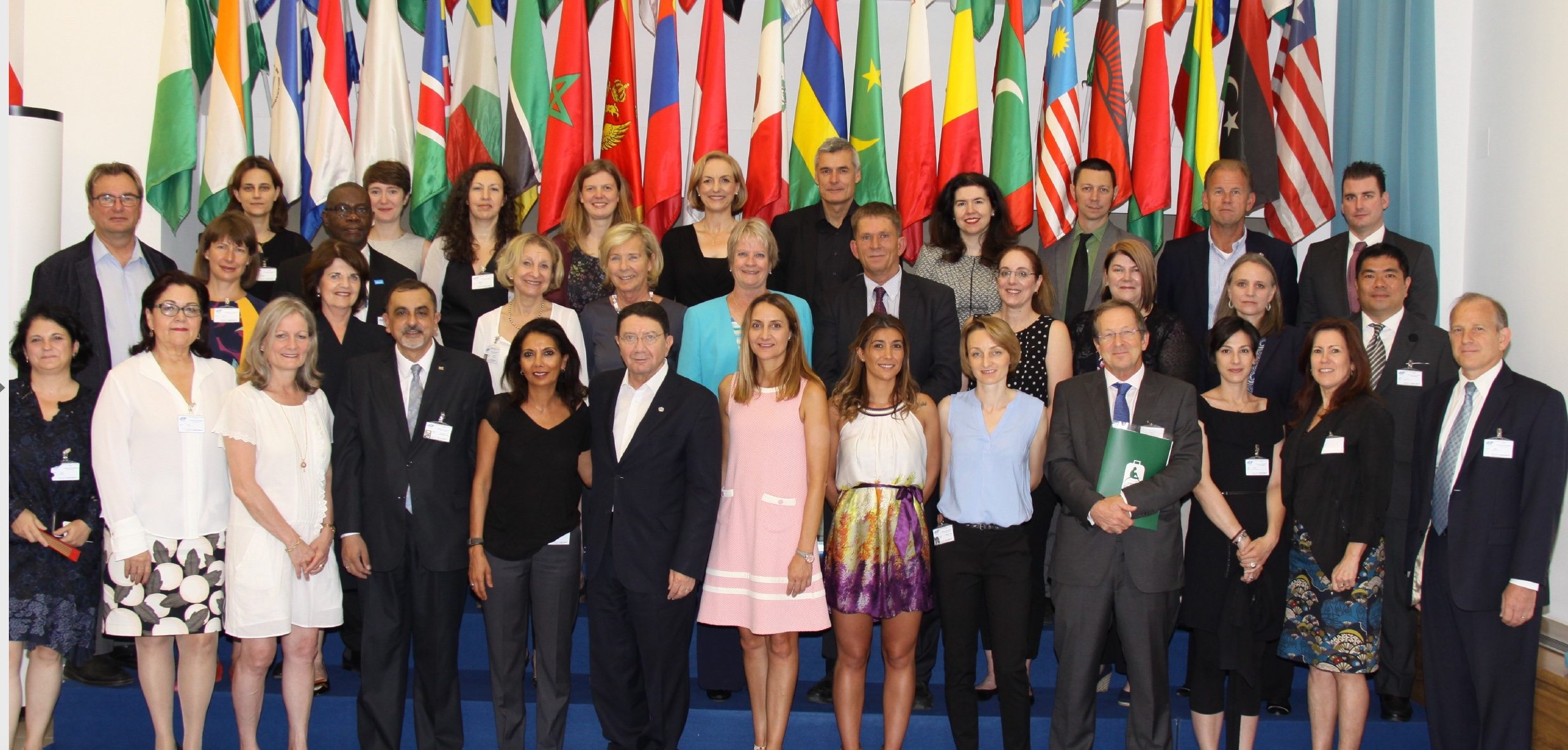
Leaders unite to stop global sexual exploitation of children through travel and tourism
A combination of weak child protection systems, cheap international travel, and growing access to the internet is thwarting efforts to counter the sexual exploitation of children in the travel and tourism industries, a conference on the issue in Madrid this week concluded.
Hosted by the United Nations World Tourism Organization (UNWTO), the meeting of international experts and officials was supported by the government of The Netherlands, UNICEF, the Global Partnership to End Violence against Children, ECPAT International and the High Level Task Force for the Global Study on Sexual Exploitation of Children in Travel and Tourism. Najat Maalla M’jid is the Chair of this Taskforce, which guided the development of the Global Study, and she set the scene for the meeting by stridently declaring, “Sexual exploitation in travel and tourism has a child’s face. No country is untouched by this phenomenon and no child is immune. In this International Year of Sustainable Tourism for Development, let us place children’s right to protection from violence and exploitation at the heart of our actions,”
“We cannot build the responsible and sustainable tourism sector that we seek without protecting the most vulnerable in our societies. To do so we need effective tools and a global commitment” said UNWTO Secretary-General, Taleb Rifai.
Delegates heard that the rise of the Internet and informal operators as well as greater access to cheap international travel have expanded demand and heightened the risk of children beng sexually exploited. At the same time, grinding poverty and lack of education – combined with the continued neglect of child protection systems – have fuelled the supply of children.
In addition, a chronic lack of robust data is allowing offenders to commit their crimes in the shadows and with impunity, while the capacity to respond internationally and nationally is being outpaced.
The UNWTO is expected to ask its General Assembly to approve a new international convention on sustainable tourism in September, with the inclusion of provisions for the protection of children.
The Special Rapporteur on the sale of children and sexual exploitation of children, Maud de Boer Buquicchio, called for, “Child protection to be placed at the core of tourism development strategies.”
UNICEF – a global leader in child protection – emphasised the need for coordinated action. “All of us — from families and governments…to hotel workers, taxi drivers and airline staff…to tour operators and telecommunications companies…to police forces…to UN agencies and NGOs — we all have a responsibility to do all we can to end this monstrous violation of children’s rights…children’s safety…and children’s futures,” said UNICEF Executive Director, Anthony Lake. “It’s everybody’s business to end the business of children being exploited and abused.”
Interpol is releasing improved tools to significantly reduce the possibilities for known sex offenders travelling unnoticed internationally.
Peter van Dalen, from Interpol’s Organized & Emerging Crime Directorate, based in Lyon said, “Anonymity protects traveling sex offenders, and INTERPOL is working with countries to deprive known sex offenders’ of their anonymity, through mechanisms such as an international warning system sharing information across borders about convicted sex offenders, as well as an international vetting system for job applicants applying to working with children.”
The private sector has been closely involved, motivated by the need to combat practices that can seriously affect their reputation and their revenue. ECPAT International is calling for travel and tourism operators to join the “The Code,” a travel industry initiative to stop sexual exploitation of children. Some of the largest players in travel are members.
Head of CSR for RIU hotels – which is a member of The Code – Catalina Alemany-Sorrell championed the commitment of the family owned international hotel chain, “Large companies in the tourism and travel industry have a greater responsibility to the communities where we operate, precisely because of our capacity for influence and transformation. For this reason, we need our commitments to send signals to society that this problem will not be tolerated and that above all, we will fight for a world where children are free from abuse.“
The challenge now is to expand coordinated action to implement the recommendations of last year’s study which called for law enforcement, the private sector and civil society organizations to work together.
The Special Representative of the UN Secretary-General, Marta Santos Pais, encouraged strong linkages with global processes, saying: “The 2030 Agenda for Sustainable Development presents a unique opportunity to reverse this pattern and make all forms of violence against children part of our distant past.
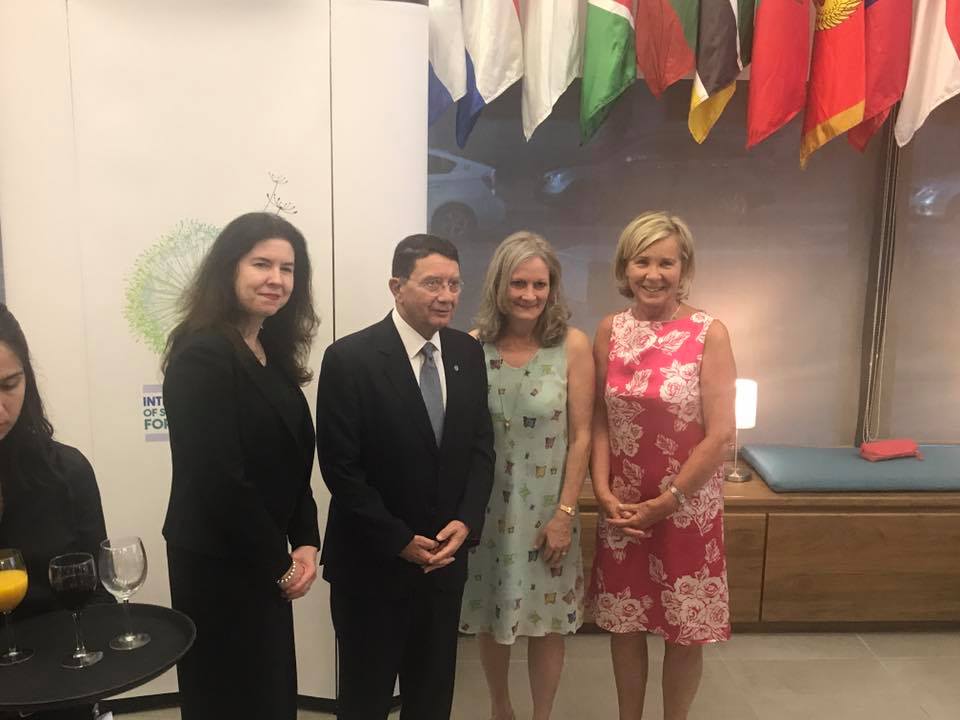
High Level Taskforce to end sexual exploitation of children in travel and tourism meets in Madrid
It started with a reception Wednesday evening in the lobby of the United Nations World Tourism Organization Headquarter in Madrid, followed by yesterday’s action packed one-day meeting of the High-Level Taskforce to end the sexual exploitation of children and tourism met at the UNWTO Headquarters in Madrid.
UNWTO Secretary General Dr. Taleb Rifai opened and closed the meeting and personally attended showing the importance of this issue Rifai called the dark side of tourism.
He said: “I don’t only care about tourism, but I care what it does to our people.”
Dr. Najat Maalla M’jid was the chair of the meeting. The event was co-hosted by the Dutch Ambassador Matthijs van Bonzel, Dorothy Rozga, Executive Director EPCAT International, Cornelius Williams, Chief Private Child Protection, UNICEF, Dr. Susan Bissell, Director, Global Partnership to End Violence against Children, and Helen Marano, Senior VO of WTTC. The global media was represented by eTN Publisher Juergen T Steinmetz, who also published WorldTourismWire.
The purpose of the event was the implementation of the global partnership to end violence against children.
The summary result: Travel – enjoy – respect.
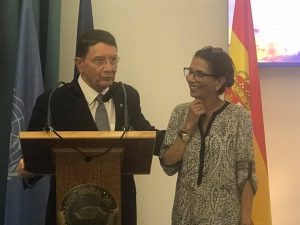
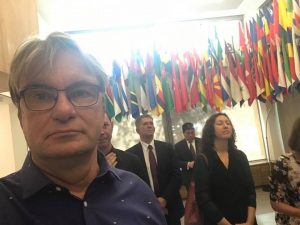
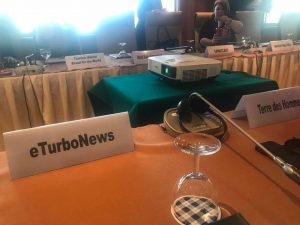
]
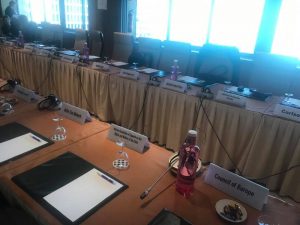
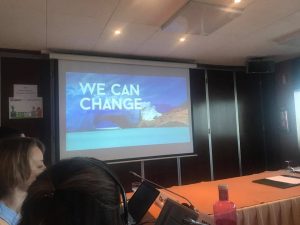
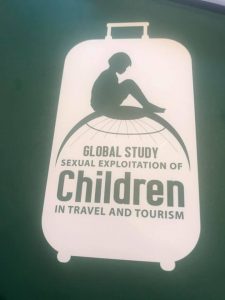
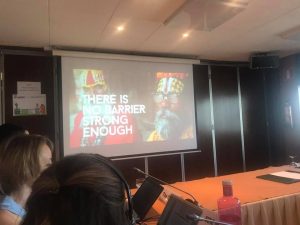
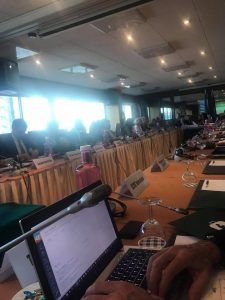


Strong tourism results in the first part of 2017
International tourist arrivals worldwide grew by 6% in January-April of 2017 compared to the same period last year, with business confidence reaching its highest levels in a decade. Sustained growth in most major destinations and a steady rebound in others drove results. Prospects for May-August 2017 remain high.
Destinations worldwide received 369 million international tourists (overnight visitors) in the first four months of the year, 21 million more than in the same months of 2016 (+6%), according to the latest UNWTO World Tourism Barometer. The January-April period usually represents some 28% of the yearly total and covers the winter season of the Northern Hemisphere and the summer season of the Southern Hemisphere, as well as the Chinese New Year and Easter holidays, among others.
International arrivals reported by destinations around the world were positive overall, with very few exceptions. Most of 2016’s strong performers maintained momentum, while destinations that struggled in previous years continued to rebound in the first part of 2017. This is especially reflected in the better results of the Middle East (+10%), Africa (+8%) and Europe (+6%). Asia and the Pacific (6%) and the Americas (+4%) continued to enjoy robust growth.
“Destinations that were affected by negative events during 2016 are showing clear signs of recovery in a very short period of time, and this is very welcoming news for all, but particularly for those whose livelihoods depend on tourism in these destinations”, said UNWTO Secretary-General Taleb Rifai.
“As we celebrate 2017 as the International Year of Sustainable Tourism for Development, we welcome the continued development of tourism and recall that with growth comes increased responsibility to ensure tourism can contribute to sustainability in all its three pillars – economic, social and environmental. Growth is never the enemy and it is our responsibility to manage it in a sustainable manner,” he added.
Regional Results
International arrivals in Europe (+6%) rebounded in January-April after mixed results last year, as confidence returned to some destinations that were impacted by security incidents, while others continued to grow strongly. Results improved particularly in Southern Mediterranean Europe (+9% as compared to +1% in 2016) and Western Europe (+4% as opposed to +0% in 2016). Northern Europe (+9%) continued to record strong growth, while Central and Eastern Europe recorded 4% more international arrivals, in line with results of last year.
In Asia and the Pacific, international arrivals were up 6% through April with sound results across all four subregions. South Asia (+14%) led growth, followed by Oceania (+7%), South-East Asia (+6%) and North-East Asia (+5%).
International arrivals in the Americas were up 4% with strong results in South America and Central America (both +7%), while arrivals in North America grew by 3% and in the Caribbean by 2%.
Limited data available for Africa points to an 8% increase in international arrivals, with North Africa (+18%) recovering strongly. International arrivals in the Middle East rebounded by an estimated 10% following a 4% decline in 2016.
Positive prospects for May-August
The current strong momentum is reflected in the UNWTO Panel of Tourism Experts confidence index, based on evaluations and prospects of worldwide experts surveyed every four months since 2003. Experts evaluated tourism performance in the first four months of 2017 with the highest score in 12 years, clearly exceeding their already positive expectations from the start of the period. Responses to the survey were strongest from Europe, in line with the rebound in arrivals.
Experts also show strong confidence in the current May-August period, as their prospects are the most optimistic in a decade, also driven by upbeat expectations in Europe. The May-August period includes the peak tourism season in most of the world’s major tourism destinations and source markets.
Useful links:

Tourism key to foster trade in Least Developed Countries
Tourism can make a strong contribution to the economies of Least Developed Countries where the sector is a major exporter concludes the report ‘Tourism for Sustainable Development in Least Developed Countries’ launched on the occasion of the Aid for Trade Review held in Geneva. The report was produced by the World Tourism Organization (UNWTO), the International Trade Centre (ITC) and the Enhanced Integrated Framework (EIF).
Tourism represents 7% of all international trade and is of increasing relevance to the trade community. Tourism is part of services trade, accounting for 30% of the world’s trade in services. This is particularly true for the Least Developed Countries (LDCs), where it represents 7% of total exports of goods and services, a figure that stands at 10% for non-oil LDC exporters.
In view of the above, and as shown in the report, tourism has been recognized as a key sector for trade-related technical assistance in LDCs. Forty-five out of 48 Diagnostic Trade Integration Studies analysed for the report feature tourism as a key sector for development.
Yet, despite tourism’s value in the trade agenda, it is often difficult to direct trade-related technical assistance towards the sector because tourism and trade tend to fall under different line ministries. Successful interventions in tourism require strong collaboration across government agencies as well as across different actors at the regional or local level.
The report aims to increase the commitment and investment in coordination and raise tourism’s prominence in trade-related technical assistance as to ensure the sector delivers on its powerful capacity to create jobs and incomes where they are most needed and for those who are most vulnerable – including youth and women.
As active partners of the EIF, UNWTO and ITC are working to contribute to this process of increased co-ordination and collaboration by joining forces in the design and implementation of tailored tourism technical assistance and tourism export strategies, and leveraging resources.
The report is launched to coincide with the International Year of Sustainable Tourism for Development 2017. In the context of the universal 2030 Agenda for Sustainable Development and the Sustainable Development Goals (SDGs), the International Year aims to support a change in policies, business practices and consumer behaviour towards a more sustainable tourism sector that can contribute to all the 17 SDGs.
Goal 17 sets as one of the targets a “significant increase of exports of developing countries, in particular with a view to doubling the least developed countries’ share of global exports by 2020”, to which tourism as service export can contribute.
Tourism and the Enhanced Integrated Framework are include in Goal 8, aiming at building inclusive and sustainable economic growth and creating jobs, thus contributing to the structural transformation of LDCs.
Additional information: Tourism for Sustainable Development in Least Developed Countries
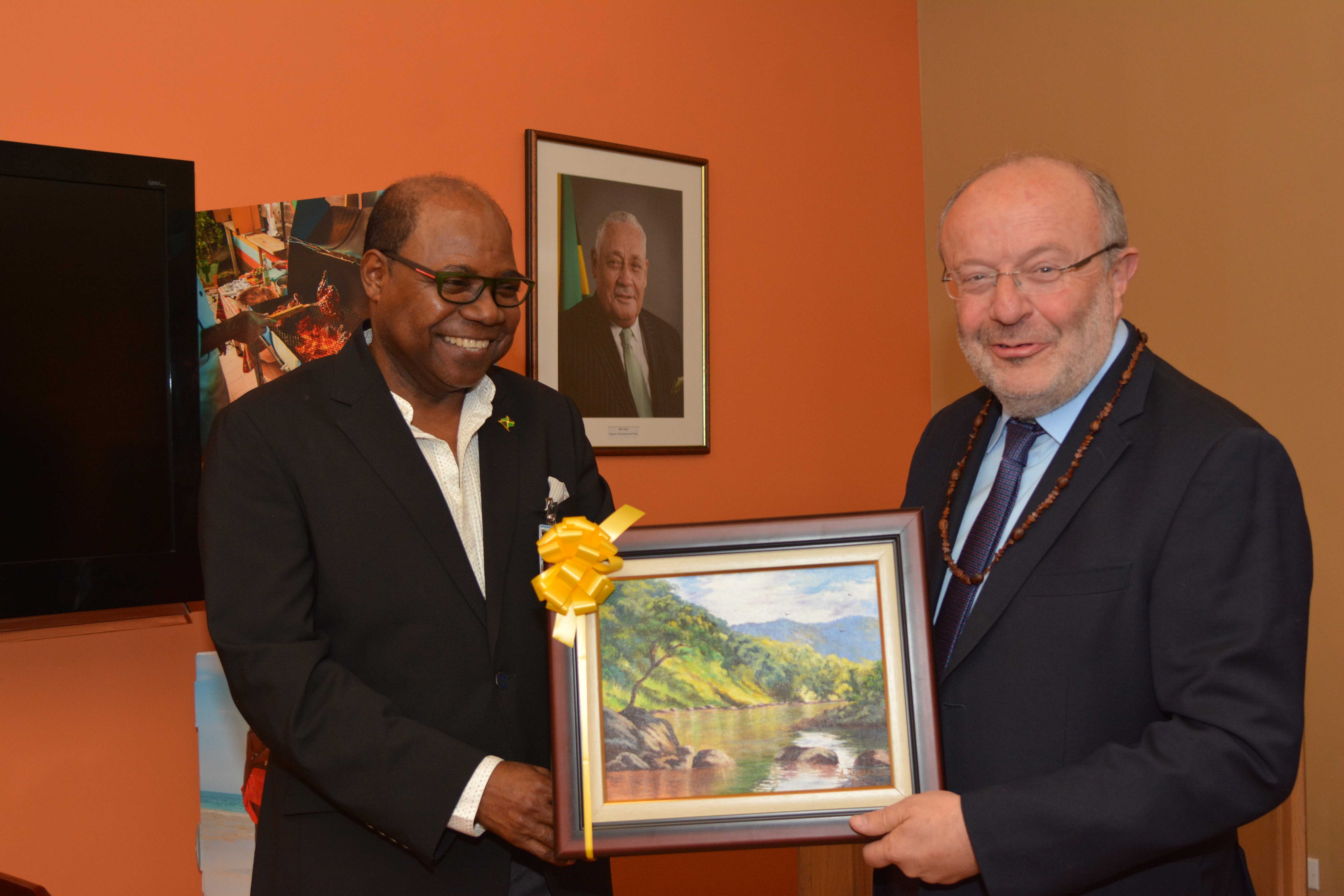
Bartlett Wants More From Tourist Dollar
MONTEGO BAY, Jamaica, Tuesday, July 11, 2017: With investment in room stock surging ahead of set targets, Minister of Tourism Hon Edmund Bartlett is turning attention to finding ways of retaining more of the tourist dollar in Jamaica.’
“What we want now is capacity building. We want investment in supplying the inputs of tourism; more agriculture, more manufacturing and more experiences with investment in entertainment, in the arts, gastronomy and culture,” said Minister Bartlett Sunday (July 9) at a press briefing at Sangster International Airport to welcome Evelop Airlines out of Madrid, Spain. “That’s the kind of investment I’m looking for from now on because we have enough takers for the 20,000 additional rooms that we want,” he added.
He was speaking against the background of Evelop adding some 8,000 seats to airlift out of Madrid to Montego Bay for the summer. A special guest on board Sunday’s flight with 328 passengers and crew was Spain’s Secretary of State for International Cooperation for Latin America and the Caribbean, Mr. Fernando García Casas, who was welcomed by a party of officials headed by Minister Bartlett and including Spanish Ambassador to Jamaica, His Excellency Josep Maria Bosch.
Spanish investment now accounts for some 10,000 hotel rooms and counting. Also, by the last quarter of this year, ground should be broken in Duncans, Trelawny, for a 750-room development by H10 Hotels out of Barcelona. About that time too, ground will be broken for 100 rooms at Rose Hall, Montego Bay. Minister Bartlett said this was in addition to the 750 rooms being built in Falmouth by Excellence Resorts.
He stressed, however, “We don’t want to be just building more and more rooms. We want to be building the capacity of the people of Jamaica to start to convert that wealth that comes here on the plane and in the ship into dollars in their pockets.”
In looking to Spain for some guidance, Minister Bartlett said he had discussed with the Secretary of State and the Ambassador the fact that tourism was responsible for the fast turnaround of Spain’s economy after the recession; defying the belief by many that because of its tourism-based economy the country would not rebound as the last thing people would do is travel. However, this belief proved to be wrong as travel was stepped up.
Minister Bartlett said this underlined the fact that tourism was not as fragile as it was made out to be but that “it represents a very sound, sustainable way of driving growth in an economy.” With the Spanish economy having bounced back, the tourist traffic had begun to move again “so we are in a position where we can leverage that to bring a direct flight to Jamaica,” said Minister Bartlett.
The Evelop rotation goes up to October but the tourism minister is optimistic that it will set the stage for scheduled flights to come.
Ambassador Bosch said the decision by Secretary of State Fernando Casas to start his visit to Jamaica in Montego Bay “is very important and marks the importance that we give as the Spanish government to tourism and on the Spanish investment in the hotel industry in Jamaica.”
He said while Spain had other interests in Jamaica, tourism was the basis on which a closer relationship would be built between the two countries.
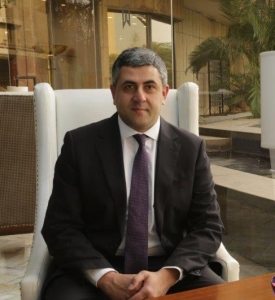
Why wait for the UNWTO General Assembly? New Secretary General positioning
Some may see it as a promising move, others are upset and concerned. The nominated but unconfirmed UNWTO Secretary General Zurab Pololikashvili has been receiving privileges only a confirmed nominee is expected to get.
It’s the most talked about and some say the most contested nomination by an UNWTO Executive Committee. Some leaders of the global travel and tourism industry and governments have shown serious doubts for the next UNWTO General Assembly to confirm the recommendation by the Executive Council.
This confirmation is needed for the nominee Ambassador Zurab Pololikashvili to officially become Secretary-General of the United Nations World Tourism Organization. This process will take place during the full UNWTO General Assembly in Chengdu, China in September 2017. Once confirmed the term will start January 1, 2018
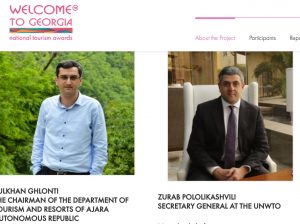
The time after a possible confirmation from September to the end of the year could easily be used for the current Secretary General to show the Secretary General-Elect how the system works. According to information received by eTN, this process has already started.
Mr. Pololikasvili attended two top level management discussions in Madrid, usually only open to the Secretary General and his close inner circle and directors. After all, this may not be and cannot be seen as a malicious move by the current SG Taleb Rifai. Mr. Pololikasvili has been seen having little or no experience and may need all the training he can get.
“Secretary General UNWTO” is the title ambassador Pololikashvili published for himself on awards-tourism.com. The awards are known as the “Oscar” for Georgian tourism recognition. The National Tourism Awards proudly appointed Zurab also as a juror and named him “Secretary General of UNWTO.”
This cannot just be an innocent mistake, but it’s understanding people in Georgia are excited and proud to have one of their own to possibly become the leader of the global tourism world.
The awards enjoy big support from the Georgian government and from the private sector. National Tourism Administration of Georgia is a co-organizer of this project, The Ministry of Economics and Sustainable Development of Georgia and Tbilisi City Hall are Official Supporters. The Awards Ceremony is an opportunity to bring together national and local authorities, hotels, restaurants, tour operators, travel agencies, wine companies and more.
Another surprise move was for Pololikashvili to meet the Bulgarian Tourism Minister Angelkova and discussed issues only relevant to UNWTO and not anything only relevant for bilateral issues between Georgia and Bulgaria.
A report in the Bulgarian media said: “The Bulgarian Tourism Minister Angelkova met with UNWTO Secretary-General Nominee Pololikashvili held a working meeting in Belgrad at a Conference on Sustainable Tourism in the Danube Region.”
“The two considered the opportunities for cooperation between the Ministry of Tourism and the UNWTO, as well as future joint initiatives for sustainable development of the sector. Angelkova familiarized Pololikashvili with the steps taken by Bulgaria for sustainable development of tourism and assured him that the country will continue to be one of the most active UNWTO members.”
The Bulgarian minister told journalist at a press conference Bulgaria had supported the Georgian candidate with their vote. Bulgaria is a member of the UNWTO Executive Council.
Some think there may be nothing wrong for Zurab to meet Angelkova in regards to UNWO, but not announcing it, not facing the media could be relating a different message. Before and after his nomination in Madrid, the ambassador had been very quiet. Answering questions or laying out plans has not been his strength.
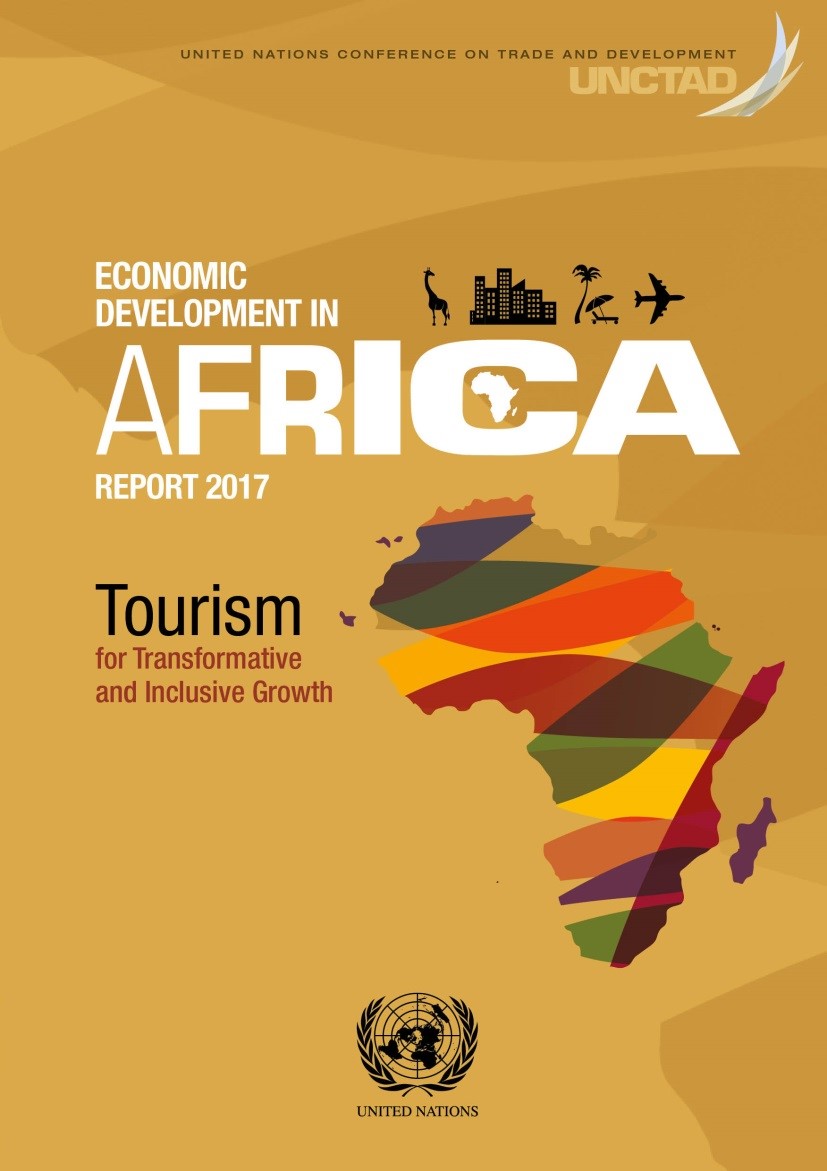
Dr. Walter Mzembi launches UNCTAD Economic Development in Africa Report 2017 on ‘Tourism for Transformative and Inclusive Growth’
06 July 2017, Mikel’s Hotel, Harare, Zimbabwe
The Officer in Charge – United Nations Information Centre, Ms. Tafadzwa Mwale;
The Director of Knowledge and Learning – African Capacity Building Foundation (ACBF), Dr. Thomas Chataghalala Munthali;
Members of Diplomatic Corps;
UN Agencies here represented;
All Dignitaries and Fellow Citizens
Tourism is the engine for not only Transformative Growth and Inclusive Growth in Africa, but the centre – piece for accelerated broad based empowerment of women and youth. The African Union adopted Agenda 2063, and in 2017, the AU adopted the theme: Harnessing the Demographic Dividend – which to me can succeed effectively if Africa exploits the inert potential in tourism.
Tourism worldwide is in the export category. It ranks third, behind only fuel and chemicals, and ahead of food products and automotive industry. In many developing countries such as Rwanda, tourism is the top export sector. It contributes 10% to Global GDP, generates 1.5 trillion USD in export earnings, employs 1 in every 11 globally, it accounts for 30% of total exports in services and it is 7% in quantum for all global trade. The sector has experience exponential growth from 25 Million international arrivals in 1950 to 1.2 Billion international arrivals in 2016.
Going forward to 2030 aligned to the SDGs timelines, the sector is signposting 1.8 Billion. However, we are likely to revise these figures on the back of fast growth of the Chinese outbound tourism market. The Chinese Premier last year cautioned us to prepare to receive 600 million Chinese tourists by 2020 globally from the projected growth of 200 million. China is currently the bulwark of outbound tourism with its ever growing middle class of over 300 million – and if anything, the projected 1.8 Billion international arrivals by 2030 could be an understatement of the reality of this sector’s growth potential. What it means – is Africa should prepare itself to receive the world.
In its wisdom, on the 4th of December 2016, the United Nations declared 2017 the International Year of Sustainable Tourism for Development. Thus, the launch of this report gives me more hope as it resonates with our celebration of 2017 the International Year of Sustainable Tourism for Development. In my campaign for post of Secretary General of the United Nations World Tourism Organisation, the results of which are all known to us, and I am happy to share with you that we missed the opportunity to lead the UNWTO by falling short of a mere two votes to Georgia. In my Statement of Policy Intent and Management – I emphasized in no particular order:
• Relevance of the organisation to its members, especially growing the tourism economy with equity across all regions.
• Reinstituting the Agency’s developmental mandate – and setting up a Global Tourism Fund being top priority to me.
• Universality: – which primarily focused on growing the membership of the organization – and align it to the 193 UN Members as opposed to the current 157 that are members of the UNWTO, and further to that bring on board countries such as the U.S.A, Britain, Australia and Canada that are currently outside the UNWTO, and to grow both Affiliate and Associate Membership, incorporating cities which are now important competitive sub-brands of tourism.
• Create more relevance of the Agency.
• Make UNWTO more inclusive – in dealing with global challenges together with other agencies e. g. dealing with issues related and not limited to Tourism and Security, Redefine insecurities to include natural disasters, Climate Change, Biodiversity terrorism on both terrestrial and marine resources, migration, travel advisories and travel bans, disasters and post disaster management and destination restorations etc.
• Make the UWTO more responsive: – Answer to membership expectations, respond expeditiously and practically to issues besetting the tourism sector. At the same time, motivate members’ active participation in global tourism policy formulation with inclusivity.
• Diplomacy – Use tourism as a tool for diplomacy in keeping with leveraging tourism to build cultural understanding across the globe and strengthen peace and co-existence among people and nations.
• Permanent representation: – meant to enhance the Agency’s international political recognition.
The race for the post will only be over once the UNWTO Secretary General Elect gets the required 2/3 confirmatory votes in September 2017, 22nd Session of the UNWTO General Assembly in Chengdu, the People’s Republic of China.
In the context of SDGs, we were assigned Sustainable Development Goals 8, 12 and 14.
Goal 8: Promote sustained, inclusive and sustainable economic growth, full and productive employment and decent work for all;
Goal 12: Ensure sustainable consumption and production (SCP) patterns; and
Goal 14: Conserve and sustainably use of the oceans, seas and marine resources for sustainable development, while having a multiplier effect on many other Goals.
This new development agenda to 2030 is the most ambitious to date, and embedded in all the 17 SGDs, are clear efforts that consign us to work towards poverty eradication, ensure sustainability, protect the planet, and ensure equality and prosperity for all.
The relationship between tourism and sustainability, inclusive growth with attendant transformative characteristics is underpinned by embracing new technology and innovation, ensuring seamless travel and security, and robust travel facilitation. Africa’s growth of all the glorious statistics I shared with you is a mere 3-5% of the global total of 1.2 Billion arrivals. Thus, the continent is the weakest link and we need to work hard to change the situation.
There is no doubt that tourism is a powerful vehicle for promoting and reaching development milestones, and I am pleased to note that Africa has huge potential if exploited to enhance tourism’s contribution to the economic, environmental and social dimensions of sustainability. Tourism contributes directly to employment creation, and this can be a solution to the problem of our young man and women having to risk their lives crossing the Mediterranean Sea and Island of Lampedusa going to Europe to look for similar jobs that can be created within Africa through investment in tourism, and retain our youth in the continent to contribute to productive work.
Africa has had its fair share of challenges chief among them: Diverse and prohibitive Visa Regimes; Destination Accessibility challenges; Continental Brand Hygienic issues; Insecurities; and Funding for competitive infrastructure development – so critical to connect destinations to markets and capital (connectography) in order to ensure a successful tourism economy.
To achieve sustainability and success of the tourism sector in Africa, we are ceased under the AU Agenda 2063 with the consummation of a continental tourism policy and institutionalisation, dealing with Brand Africa, Liberalisation of the airspace through the implementation of the 1998 Yamoussoukro Declaration. We are also implementing Universal Visa Systems (UNIVISA), building more hotels, airports and resorts in order to improve tourism business and trade in Africa.
At the same time, we are ceased with sustainable management and conservation of both marine and terrestrial natural resources. According to the UNWTO Study on ‘Towards Measuring the Economic Value of Wildlife Watching Tourism in Africa’ nature related activities accounts for over 80% of Africa’s product offering and attraction. Thus, we are conscious of sustainable management of our natural resources to remain relevant and competitive as a continent. More importantly, we are also paying attention to matters related to tourism and security so that we guarantee safety and peace to our visitors. In my view, tourism essentially serves the planet as well as people – thus we are conscious on our sector to alert to climate change issues, mitigation and adaptation of the sector to avoid the risks that can degrade our product offering and competitiveness.
The Report shared to us today by the United Nations Conference on Trade and Development (UNCTAD) regarding Economic Development in Africa 2017 with the primary focus on ‘Tourism for Transformative and Inclusive Growth’, resonates with our various efforts at both national and international levels as we seek to maximise this sector’s potential to sustainable development. The results show great potential – a source of hope to all of us. At the same time, it identifies gaps – which in themselves represent strong cases needing attention from both the public and private sector to work as a collective in addressing these challenges.
Ladies and Gentleman, it is my singular honour and privilege, to declare the UNCTAD Economic Development in Africa Report 2017, Tourism for Transformative and Inclusive Growth launched.
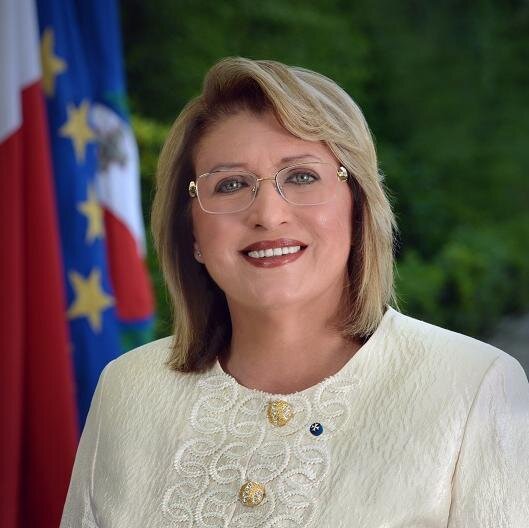
UNWTO appoints President of Malta as Special Ambassador of International Year of Sustainable Tourism for Development
Marie Louise Coleiro Preca, President of the Republic of Malta, has been nominated as Special Ambassador of the International Year of Sustainable Tourism for Development. The appointment took place at a ceremony held at the World Tourism Organization (UNWTO) Headquarters in Madrid.
The President of Malta, Marie Louise Coleiro Preca, underlined in her intervention the relevance of sustainable tourism as a means to build peace, social cohesion, and prosperity for all of humanity.
Cultural diplomacy, peace building and understanding were some of the components of sustainable tourism highlighted by the President of Malta. “Tourism shows us that positive experiences in new destinations can transform people’s perceptions, and give them a new understanding of different cultures,” she said.
“Tourism has the power to make us aware of our enriching diversity. In an increasingly globalized world, tourism provides opportunities for social solidarity, community empowerment, and potential peace building,” she added.
“When designating 2017 as the International Year of Sustainable Tourism for Development, the UN recognized tourism’s contribution to people and planet; to peace and prosperity. The Mediterranean is a melting pot of civilizations; a testimony of our origins and an inspiration for our future and having the President of Malta as a contributor to the International Year is a privilege,” said UNWTO Secretary-General Taleb Rifai.
The event served also to introduce the Mediterranean Tourism Foundation, of which the President of Malta is a Patron. Established in 2013, the Foundation aims at increasing the potential for sustainable tourism growth across the Mediterranean and to transform the Mediterranean into an area of peace, cooperation and prosperity by investing and promoting sustainable tourism.
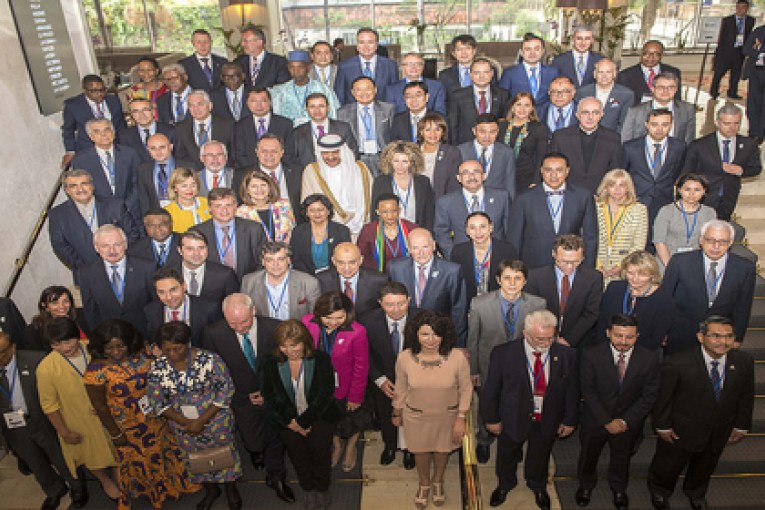
UNWTO Election: A second open letter from Cairo expanding the movement against Zurab Pololikashvili
On May 1, 2017 eTN publisher Juergen T Steinmetz circulated an open letter asking if the UNWTO Election was for sale?
Four days later he continued: Silence is not always golden. This was the day this movement started.
When this movement started there was no corruption allegation yet, there was also no allegation of a “flawed” process.
Steinmetz says: It’s about assuring the United Nations World Tourism Organization (UNWTO) has a qualified fairly elected successor to the highly respected current secretary general Taleb Rifai when leaves his post the end of 2017.
Taleb Rifai declared on election day May 12 : “I am proud of all candidates.” and the same day Steinmetz had a Question to you? UNWTO Election – is there a problem?
The problem was a football game candidate Zurab Pololikashvili invited voting delegates to attend with him two nights before the election. The Kenya minister was caught right handed when posting a picture of his ticket and himself visiting the game on Facebook.
When more and more details emerged the Hon. Walter Mzembi from Zimbabwe who was number two in the election broke the silence and took his gloves off. Our article entitled: “The Hon. Dr. Walter Mzembi takes on UNWTO Election ” had record openings. On June 13 the Zimbabwe Minister filed his position paper on what he called “flawed” UNWTO election process. His intervention was not yet responded to by the UNWTO leadership.
In the meantime, the movement continues. It expanded to many corners of this world. Mainstream newspapers are reaching out to learn more. Trade publication in Switzerland, Germany, USA and now
In Uruguay, Passaporte news translated the eTN article on the football game into Spanish and added their own spin to it.

In Egypt Ashraf El Gedawy, publisher of Arab Tourism Portal News in Cairo printed his own open letter.
This is a transcript of his letter. eTN did not edit the transcript since it was taken directly from Arab Tourism Portal News English translation edition.
The original article was published in Arabic.

TRANSCRIPT (not edited):
Almasalla-Cairo- Perhaps the farce of the last election in May for the post of Secretary General of the UNWTO (World Tourism Organization), and its disappointing results, came with a number of facts revealing the size of the slack, and the bureaucracy that is nestled within this large professional institution.
UNWTO is a very professional UN Organisation when dealing with issues on an International scale. They are indeed respected when speaking about international tourism and its impact on Member States, and they are heard when giving recommendations on Member State services and when they are working to open up the way for Member States and helping them to promote through specific programs.
The UNWTO is always present as the support for the tourism industry of Member States, and have also provided professional experts when the global slowdown in tourism was apparent in order to help those developing and poorer countries to use their natural, archaeological and historical resources to create unique tourism products capable of helping to modernize these countries tourism appeal, and to help promote them through a strong and youthful tourism industry to achieve the required economic development.
The UNWTO’s assistance was always seen as a step towards the sustainable integrated development of small and developing countries. This was always welcomed advice because tourism can be a great world to stay in for the powerful because the acronym of “the big fish eat the little” is too often an accepted practice.
Perhaps some are now puzzled because the writer of the article describes the organization with the bureaucracy and slack and at the same time praises its positive role in the development of tourism industry in different countries of the world ..!
In fact, there is no dispute over the importance of the organization and its developmental role to stand next to the member states and its diverse activities to establish tourism as a powerful international industry that stands side by side with the automobile, arms and pharmaceutical industries.
But the slack, disappointment and bureaucracy that hit the offices of the Organization speaks for itself in the form of the recent elections for the post of Secretary General … This is a major disaster that occurred on the head of the Organization in the absence of standards and professional requirements for this high-level position and the matter .. For information here do not blame on Secretary-General of the current organization Dr. Taleb Rifai, who achieved in the first and second mandate at the head of the Organization a lot of excellent achievements for the Member States and for the world tourism. To try to compile the narratives now, as a journalist I see the size of the achievements of the Organization on the ground, as well as the interaction with International media on the issues of the global tourism industry.
Taleb Rifai, the Jordanian Secretary General served diligently when he was in charge of this world body. For “Rifai” it was always organize visits of member states as “home from home” as the secretary general of the Tourism Organization and he said that in his remarks to the people of the tourism industry in all international events.
It is fair to say that the regulations, requirements and standards that were chosen by the secretary-general of the Tourism Organization were in the past quite valid when the organization was established at the beginning, but with the natural development and emergence of modern management sciences, human resources sciences. The rules and criteria for the selection of the Secretary General of the Organization of Tourism is old and outdated and is not valid for the current time .. Exactly as the engineer puts a 1949 engine in a a car model 2017 ..!
It is unacceptable, unfair, and unreasonable that an ambassador of a country with no relation to the industry should come forward to compete for the high post in the recent elections. As some have written in the international press, “this ambassador has suspicious and strange relations” with ministers and tourism officials from the members of the organization that helped him to form a lobby that enabled him to pass the election and succeed in it.
In this last election he won over four tourism ministers and a high-ranking official from the organization itself who was the Number 2 man after the secretary-general. After the departure of the candidate of Seychelles, the former Minister of Tourism, Alain Saint Ange, who was instrumental in delivering a tourism industry of a high-level model for his country. Seychelles can only be seen and appreciated by the famous and rich.. but that tourism Minister turned Seychelles from just a tropical island to “the sought after paradise of God on the earth.”
It is strange and exciting that the member countries of the World Tourism Organization since the last elections in May did not move even with the flood of media criticism of the elections also echoed by the international press that said that the result was disappointing.
We had an ambassador not specialized at all in the tourism sector, and all his relationship to tourism is to stay in tourist resorts will be the next secretary General of the World Tourism Organization ..?!
The Secretary General must today be a tourism professional and from a country seen as a leader in tourism. Gone are the days when just anyone can occupy this high office. Also a Minister from a Government or country that is under scrutiny cannot lead the world. That cannot be difficult to see and understand. make your country work before you try to lead the world and understand tourism before you want to lead the tourism industry.
As if the “member states” of the organisation analyse the elections and blame all the blame on these ministers and experts who were present in Madrid, t is today necessary to move a lobby of them to move those stagnant water, and the rapid formation of a high-level committee to establish new technical controls and standards for the selection of Secretary General of the Organization of Tourism. The controls that were valid in 1990 are not valid at all in 2017.
Of course, I can not blame the secretary general of the organization today, nor ask him to prepare new criteria for the new candidate, because the issue is very sensitive at this time, and he should have been aware of this since the first year of assuming his duties and open the debate on this important issue with Ministers from Member countries and organizations of the World Tourism Organization, to come out with a decision to amend the controls, conditions and standards, but as “Rifai” today leaves his papers and packs his belongings to leave the corridors of the organization in Spain the organisation with have a non tourism person and nearly had one from another bankrupt country facing sanctions from greater Europe .
The Executive Council of the World Tourism Organization (WTO), which has more than 33 members elected by the General Assembly with one member out of five active members of some 156 member states, should take a decision quickly to set new benchmarks for the post of secretary general, And opened the door once more to advance to those who wish to be experts and experts for this important and dangerous job of the global tourism industry in the future of the days.
